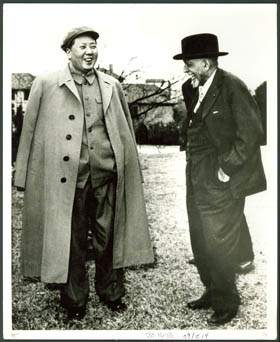
The Department of Special Collections and University Archives and the Department of Afro-American Studies at UMass Amherst co-sponsor an annual colloquium to commemorate W.E.B. Du Bois. Timed to coincide with the anniversary of his birth (February 23), the departments invite a distinguished Speaker to discuss Dr. Du Bois’ life, work, and legacy.
- Speaker: Aldon Morris, Leon Forrest Professor of Sociology and African American Studies, Northwestern University
- Title: W.E.B. Du Bois and the founding of Sociology
- Speaker: David Levering Lewis, Julius Silver University Professor and Professor of History at New York University
- Title: W.E.B. Du Bois
- Performer: Brian Richardson and Pulse Ensemble Theatre
- Title: “A Man for All Times: W.E.B. Du Bois”
-
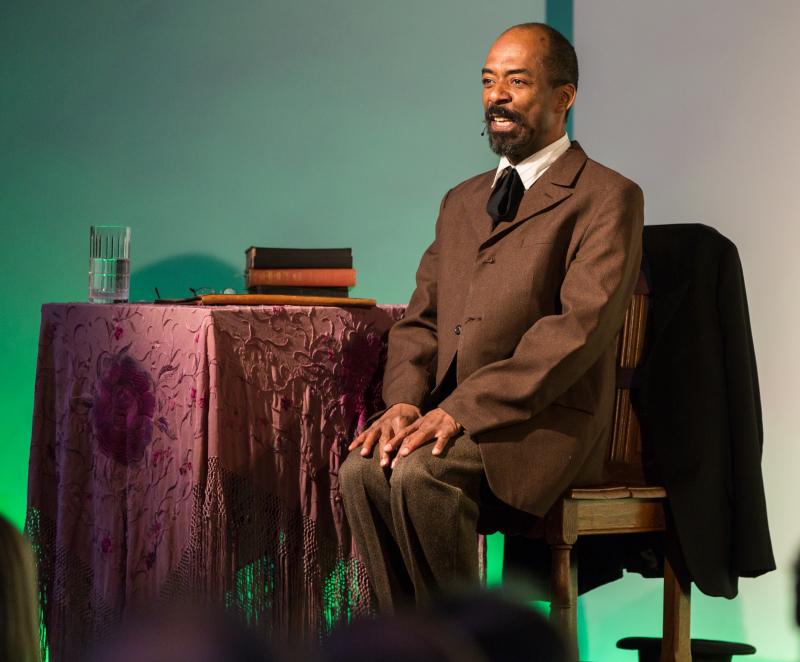
This year’s Du Bois Birthday Celebration features performances of “A Man for All Times: W.E.B. Du Bois,” performed by the Pulse Ensemble Theatre. The one-hour one-man show of the 95-year-long life of W.E.B. Du Bois unfolds in a gripping performance by Brian Richardson, and a moving script by writer/director Alexa Kelly. Learn more about Great Barrington’s native son, civil rights leader, and visionary of equality and democracy at this free performance by Pulse Theatre Ensemble.
Additional free performances will be held on Saturday, February 22, 7:00 p.m., at Mahaiwe Performing Arts Center, in Great Barrington, Massachusetts, and on Sunday, February 23, 10:00 a.m., at St. John’s Congregational Church, Springfield, Massachusetts.
- Speaker: Arthur McFarlane II
- Title: “The Life of W.E.B. Du Bois and Its Relevance to Today
- Colorado Department of Public Health and Envrionment
-
McFarlane, the great-grandson of W.E.B. Du Bois, will discuss the legacy of W.E.B. Du Bois, civil rights activist, co-founder of the NAACP, and the first African American to receive a PhD from Harvard University.
- Speaker: Derrick Alridge
- Title: “Ideas Have Consequences: The Radical Pedagogy of W.E.B. Du Bois”
- Professor in the Curry School of Education, University of Virginia
-
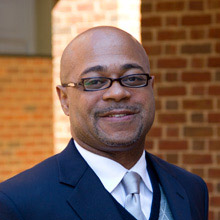
Derrick Alridge is author of The Educational Thought of W.E.B. Du Bois: An Intellectual History, lead editor of Message in the Music: Hip Hop, History, and Pedagogy, and Distinguished Lecturer for the Association of the Study of African American Life and History. He is currently completing an intellectual history of Hip Hop as a social movement called The Hip Hop Mind: An Intellectual History of the Social Consciousness of a Generation (University of Wisconsin Press) and is conducting research for a book on the role of education in the civil rights movement.
An educational and intellectual historian, Alridge is associate editor of the Journal of African American History and served as Director of the Institute for African American Studies. Alridge’s areas of scholarship include the history of African America education, African American intellectual history and the history of ideas, and civil rights studies. His work has been published in the Journal of African American History, the Journal of Negro Education, and teh History of Education Quarterly, among others.
- Speaker: Bettina Aptheker
- Title: “W.E.B. Du Bois: Personal Stories/Political Reflections”
- Distinguished Professor of Feminist Studies and History
University of California, Santa Cruz -
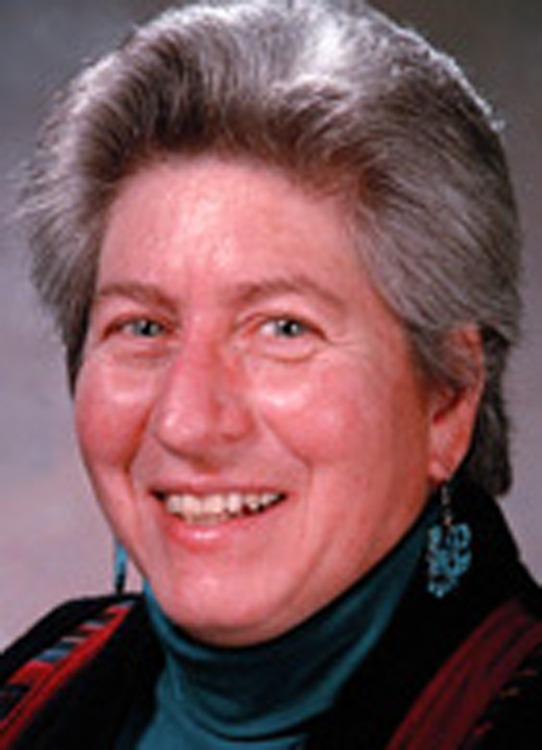
Bettina Aptheker is Distinguished Professor of Feminist Studies and History at the University of California, Santa Cruz, where she has taught for more than 30 years. Her most recent book is a memoir, Intimate Politics: How I Grew Up Red, Fought for Free Speech and Became a Feminist Rebel (2006). It contains many stories of her early friendship with W.E.B. and Shirley Graham Du Bois. Other major books include, The Morning Breaks: The Trial of Angela Davis (1976; 2nd edition, 1999); Woman’s Legacy: Essays on Race, Sex, and Class in American History (1982) and Tapestries of Life: Women’s Work, Women’s Consciousness, and the Meaning of Daily Experience (1989). She is the biographer of Shirley Graham Du Bois for Notable American Women, and is currently writing a critical essay on Graham Du Bois’ creative career as an opera composer, playwright, biographer, and novelist. She is also at work on a major research project: “Queering the History of the American Left: 1940s-1980s.”
- Speaker: Evelyn Brooks Higginbotham
- Title: “The Many Lives of W.E.B. Du Bois in the New From Slavery to Freedom”
- Victor S. Thomas Professor of History and of African and African American Studies
Harvard University -
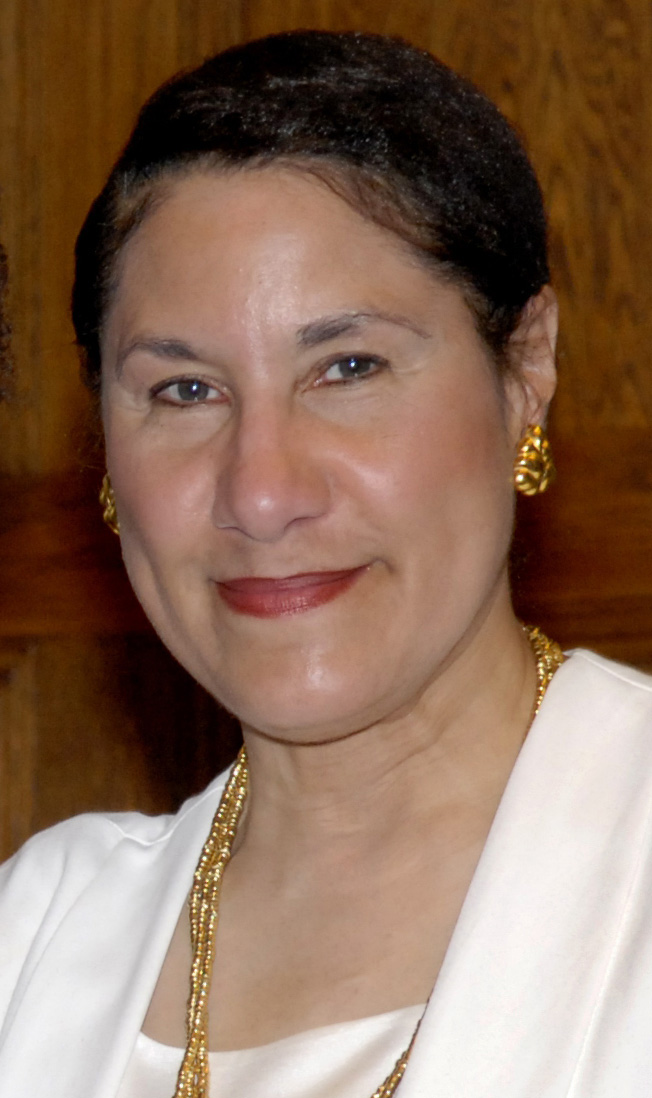
Evelyn Brooks Higginbotham has been chair of the Department of African and African American Studies at Harvard since 2006. She also served as Acting-Director of Harvard’s W.E.B. Du Bois Institute in the Spring 2008. A prolific author, she is co-editor with Henry Louis Gates, Jr., of the African American National Biography (2008)—a multivolume-reference work that presents African American history through the lives of people, and she and Gates also co-edited African American Lives (2004), which served as the forerunner to the AANB. Professor Higginbotham was the editor-in-chief of The Harvard Guide to African-American History (2001) with general editors Darlene Clark Hine, and Leon Litwack. She also co-edited History and Theory: Feminist Research, Debates and Contestations (1997).
Professor Higginbotham is the author of Righteous Discontent: The Women’s Movement in the Black Baptist Church: 1880-1920 (1993), which won numerous book prizes, most notably from the American Historical Association, the American Academy of Religion, the Association of Black Women Historians, and the Association for Research on Non-Profit and Voluntary Organizations. Righteous Discontent was also included among the New York Times Book Review’s Notable Books of the Year in 1993 and 1994.
- Speaker: Howard Dodson
- Chief of the Schomburg Center for Research in Black Culture
New York Public Library -
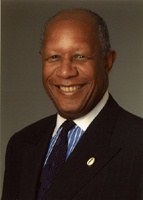
A scholar, historian, educator, curator, consultant, and lecturer, Howard Dodson, has committed his professional life to the retrieval, preservation, interpretation, and dissemination of the history and culture of African and African American peoples.
Since 1984, Dodson has served as chief of the New York Public Library’s Schomburg Center for Research in Black Culture, the world’s leading and most prestigious repository for materials and artifacts on black cultural life. Under Dodson’s leadership, the Schomburg Center has developed into the world’s most comprehensive public research library devoted exclusively to documenting and interpreting African diasporan and African history and culture.
Dodson’s books include Becoming American: The African American Journey (Sterling Publishing, Inc., 2009), In Motion: The African-American Migration Experience (National Geographic Press, 2004), Jubilee: The Emergence of African-American Culture (National Geographic Press, 2002), and The Black New Yorkers: Four Hundred Years of African American History (Wiley, 2000).
- Speaker: Arnold Rampersad
- Department of English, Stanford University
-
A distinguished biographer and literary critic, Arnold Rampersad is the Sara Hart Kimball Professor in the Humanities and Professor of English at Stanford University. A scholar of race and American literature and the Harlem Renaissance, Rampersad has written books on W.E.B. Du Bois, Langston Hughes, and most recently, Ralph Ellison. He has been elected a member of the American Academy of Arts and Sciences and the American Philosophical Society, and was a 1991 recipient of a MacArthur “genius grant.” He is a recipient of fellowships from the John D. and Catherine T. MacArthur Foundation, the Guggenheim Foundation, the National Endowment for the Humanities, and the Rockefeller Foundation.
Professor Rampersad has recently published Ralph Ellison, a biography of the novelist (1914-1994). His other books include The Art and Imagination of W.E.B. Du Bois (1976); The Life of Langston Hughes (2 vols., 1986, 1988); Days of Grace: A Memoir (1993), co-authored with Arthur Ashe; and Jackie Robinson: A Biography (1997). In addition, he has edited several volumes including Collected Poems of Langston Hughes; the Library of America edition of works by Richard Wright, with revised individual editions of Native Son and Black Boy; and (as co-editor with Deborah McDowell) Slavery and the Literary Imagination. He was also co-editor, with Shelley Fisher Fishkin, of the Race and American Culture book series published by Oxford University Press. His teaching covers such areas as nineteenth and twentieth-century American literature; American autobiography; race and American literature; and African-American literature.
- Speaker:James Turner
- Africana Studies and Research Center, Cornell University
- Poster (pdf)
- Speaker: Clayborne Carson
- Stanford University, editor, Papers of Martin Luther King
- Press release (pdf)
- Speaker: Robert Hill
- UCLA, editor, Papers of Marcus Garvey
- Press release (Word file)
- Speaker: John H. Bracey
- Afro-American Studies, UMass Amherst
- Panelists:
- Horace Clarence Boyer
- Music, UMass Amherst
- Esther Terry
- Afro-American Studies, UMass Amherst
- Phil Zuckerman, “Du Bois, Religion, and The Souls of Black Folk“
- Sociology, Pitzer College
- David Blight, “A Poet’s Sense of the Past: The Souls of Black Folk as History”
- History, Yale University
- Ernest Allen, “The Education of Black Folk: The Educational Philosophies of W.E.B. Du Bois”
- Afro-American Studies, UMass Amherst
- Gerald Friedman, “Reconstructing the Color Line: The New Economics of Race in the Post-bellum South”
- Economics, UMass Amherst
- Panelists:
- Esther Cooper Jackson
- Co-founder, Freedomways
- James Jackson
- Editor, Daily Worker
- Abbott Simon
- Executive director, Peace Information Center and co-defendant with Dr. Du Bois
- Speaker: David Levering Lewis
- History, Rutgers University
- Speaker: Ruth Simmons
- President, Smith College
- Speaker: Ernest Allen
- Afro-American Studies, UMass Amherst
- Speaker: Randolph W. Bromery
- President, Springfield College and former Chancellor, UMass Amherst
- Speaker: David Levering Lewis
- History, Rutgers University
- Panelists:
- David Du Bois
- William Strickland
- Michael Thelwell
- Speaker: Herbert Aptheker
- Editor, Complete Published Works of W.E.B. Du Bois
- Listen to a recording of Aptheker’s lecture.
function showText(id) {
document.getElementById(id + ‘-hidden’).style.display=’block’;
document.getElementById(id + ‘-hide’).style.display=’inline’;
document.getElementById(id + ‘-show’).style.display=’none’;
return false;
}
function hideText(id) {
document.getElementById(id + ‘-hidden’).style.display=’none’;
document.getElementById(id + ‘-hide’).style.display=’none’;
document.getElementById(id + ‘-show’).style.display=’inline’;
return false;
}
function displayHideControl(id) {
var blockControl = document.getElementById(id + ‘Control’);
if (blockControl != undefined) {
blockControl.innerHTML = ‘[-]’
}
}
function displayShowControl(id) {
var blockControl = document.getElementById(id + ‘Control’);
if (blockControl != undefined) {
blockControl.innerHTML = ‘[+]’
}
}
function toggleText(id) {
// Get the current visibility based on whether the hidden text is visible or not
var blockHiddenTextVisibilityStatus = document.getElementById(id + ‘-hidden’).style.display;
if (blockHiddenTextVisibilityStatus == ‘block’) { //hidden text is visible
// We need to make the text invisible
hideText(id);
displayShowControl(id);
}
else {
showText(id);
displayHideControl(id);
}
return false;
}

